Find Out About the Dog Breed That Does Not Get Cancer
I’d like to start things off by being upfront: all dogs are susceptible to canine cancer in one way or another. Regardless of what your pet’s breed is, there will always be a very slim chance that he could be at risk of getting cancer in dogs without a warning.
- Click to learn more : 👉 Provide natural support during CANCER IN DOGS 🐶
On the other hand, there are particular dog breeds that seem to be more resilient against cancer in canines based on statistical data. And we will discuss these pedigrees in just a few moments.
But before we get to them, I’d just like to have a quick rundown of the most common types of cancer in dogs…
The Most Common Types of Dog Cancer
Your canine family member is potentially at risk of developing various types of cancer in dogs.
The most common canine cancers that your pet may be vulnerable to include transitional cell carcinoma, hemangiosarcoma, melanoma, mast cell tumors, osteosarcoma, leukemia, lymphoma, as well as mammary cancer.
Along with the certain dog breeds that appear to be more hardy when it comes to cancer, I will also get you in on a science-backed natural support for canine cancers as we go along.
The Particular Breeds That are More Resilient Against Cancer in Dogs
The following dog breeds are deemed as the least prone to cancer, based on information collected from online surveys, databases, insurance registries and studies published in scientific journals such as the National Center for Biotechnology Information (NCBI).
These cancer-hardy canine pedigrees are as follows:
#1: Australian Cattle Dog
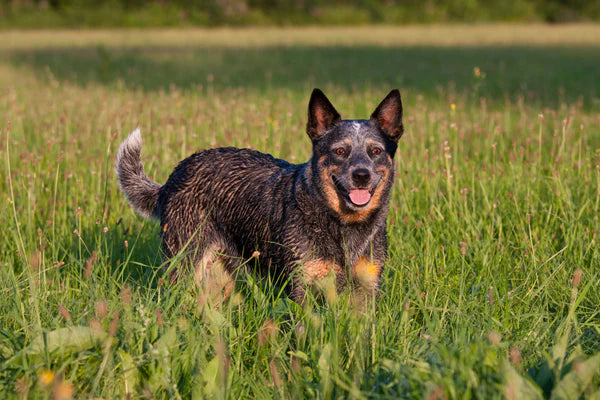
The Australian Cattle Dog is the result of breeding the Dingo (yes, the wild dog of the Land Down Under) with the Blue Merle Collie. This pooch is inherently tough against harsh temperatures and unpredictable weather. The same could be said for this breed’s low cancer rates.
#2: Belgian Malinois
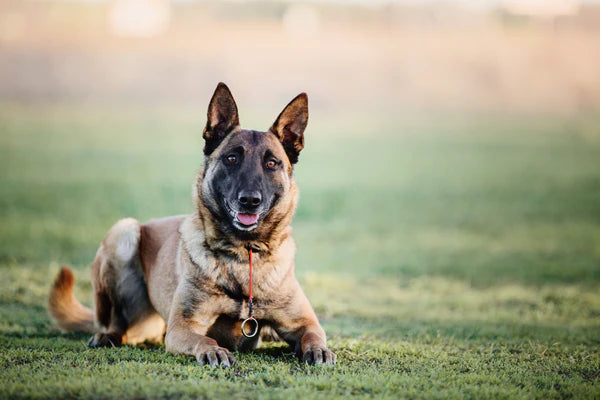
Originally bred as a herding dog, the Belgian Malinois has become quite a star in the field of law enforcement as well as search and rescue over the years. There are even accounts of these dogs going skydiving during military operations. This breed is extremely protective and also has the hardiness against cancer to go along with it.
#3: Chihuahua
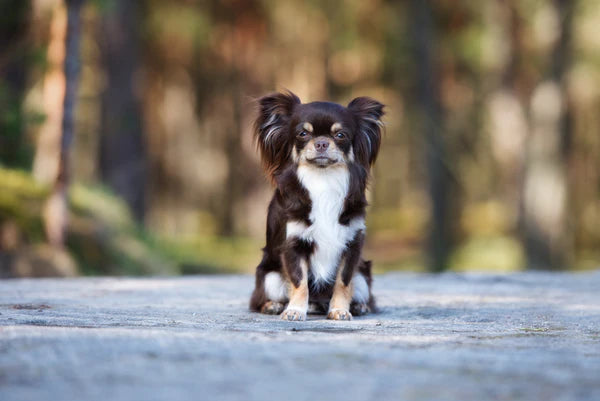
The Chihuahua has a very big personality despite its rather diminutive size. Often regarded as one of the best breeds for apartment and condominium dwelling, this pooch also has very low cancer rates. A really fun fact about this pedigree is that it has a very large brain in relation to body size, which explains their remarkable intelligence.
#4: French Bulldog

Often regarded as a somewhat “talkative” dog for its versatile usage of murmurs, yips, and grunts, the French Bulldog is typically sociable and playful. Here’s the thing, though: while the Frenchie’s vulnerability to cancer in dogs may not be that high, its brachycephalic nature (or short snout) makes it quite prone to respiratory issues.
#5: German Pinscher

Not to be confused with its cousin the Doberman, the German Pinscher is a very smart and observant dog. It was originally bred as a home protector, a vermin exterminator, as well as a hunting companion. This pooch is also very robust health-wise and has one of the lowest dog cancer rates.
#6: Papillon
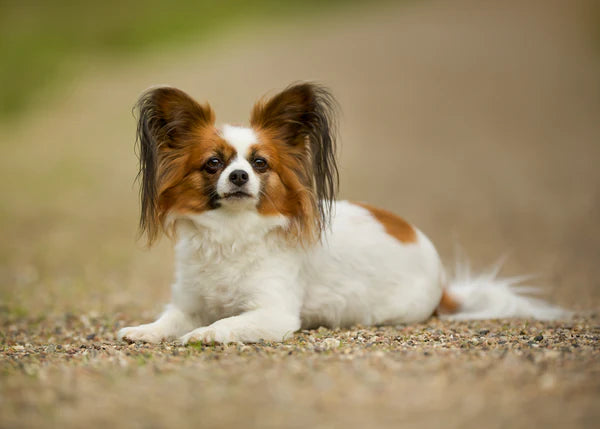
Although the Papillon is widely known for its distinct butterfly-shaped ears, it is also regarded as a dog that is resilient to cancer in canines. This breed has been around since the 1500’s and their lineage can be traced back in Europe as posh companions for nobles. Bonus fun fact: sure the Papillion may be pint-sized but it can run really fast!
#7: Pomeranian
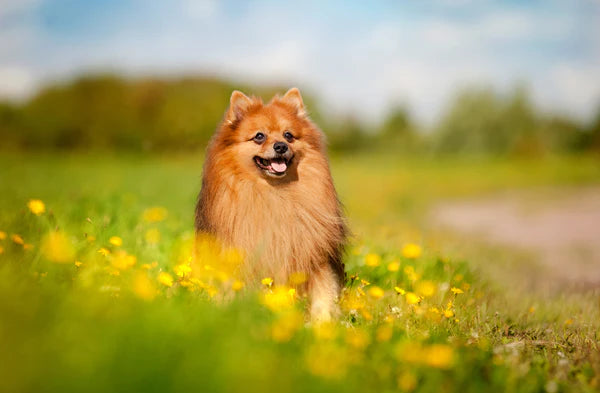
Affectionately referred to as the “Pom-pom,” this pooch is often designated as a therapy dog or pet assistant to the hearing impaired due to their intelligent and curious nature. Besides its low cancer rate, another key attribute about the Pomeranian is the diversity of its coat, which can come in more than 20 color variations.
And that’s our list of the breeds that have been observed to be quite resilient to cancer in dogs.
Natural Cancer in Dogs Support Product You Should Know
While most people immediately think of conventional medicines as soon as the term “dog cancer” comes up, you can actually get your hands on a natural alternative made from the scientifically-proven Fomitopsis betulina to support your dog during cancer.
Zumalka’s PIPTOPET is formulated to boost and maintain your dog’s overall immune system health so he can have the right resilience against disease whenever he needs it the most.
Apart from being designed to support vital systems of detoxification and help reduce oxidative stress, PIPTOPET also uses a gentle holistic approach to deal with cancer cells without the use of chemicals. These chemicals can accumulate in your pet’s body, leading to adverse side effects sooner or later.
A Final Word
All dogs are vulnerable to canine cancer, but there are certain breeds that are more susceptible to this serious disease compared to others. And having the right support when it comes to cancer in dogs is definitely crucial to maintain your pet’s quality of life even during this health crisis.
If you’re looking to find out more about cancer in dogs or just want to connect with a professional to get started with your homeopathic medicine journey, feel free to contact us at any time. We are very excited to hear from you real soon!









Hi Demetria,
Thank you for your excellent question. Since most worms come from either unhealthy water/food or from insect bites, we recommend watching their water/food quality and helping them with an insect repellent such as our MOSQUITOPET product. We will also send you an email with more targeted options for you!
Regards,
Zumalka
Is there a natural alternative to heart worm preventives given by the vets?
Leave a comment